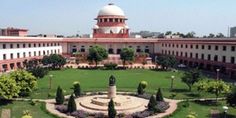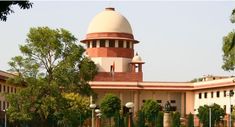Chinese Companies use of Indian Lawyers and Law Firms
Chinese Companies Utility Indian Lawyers and Law Firms
The terms compliance and compliance
risk are now becoming more and more familiar to Chinese companies. Many
Chinese companies have also established systems such as corporate lawyers or
legal consultants to ensure that companies maximize their economic benefits. At
the same time, it will not touch the "red line" of the law and cause
damage to its interests.
In many cases, a company’s project requires a lawyer or a
team of lawyers from a law firm to complete the project. For investing in
India, limited by information, how to choose a reliable law firm is a big
problem for Chinese companies.
First of all, India’s current legal market is not open to foreign lawyers and law firms. If there are Chinese citizens undertaking business in the name of "lawyers in India", it is definitely illegal. What's more, they have not obtained an Indian work visa. Under the circumstances, hold a business visa or student visa to work illegally in India.
Once seized, not only will they be deported, but the reputation of Chinese companies that accept legal services from them will also be significantly affected, and their projects will also have an irreversible impact.
India also
prohibits foreign law firms from setting up branches in India, especially law
firms established in other countries under a unified brand, while setting up
branches in India. There is currently no foreign law firm in India.
Foreign Law Firm Offices in China
This is different from China allowing foreign law firms to set up representative offices in China, because when India joined the WTO before, it made a corresponding reservation (Reservation), which is the opposite of China. China allows foreign law firms to open representative offices in China.
But it is forbidden for foreign arbitration institutions to come to China to
establish representative offices (there has been a loosening recently). India
allows foreign arbitration institutions to establish representative offices in
India, and does not allow foreign law firms to establish representative offices
in India.
The following timeline shows how this issue is handled in Indian legislation and judicial practice:
l In 1961, India passed the Lawyers Act, which stipulates
that only members of the Bar Council can provide legal services in India, and
members of the Bar Council can only be citizens of India.
l After India joined the WTO in the 1990s, a large number of foreign law firms sought to establish representative offices or service agencies in India.
This behavior was considered to violate the provisions of
the Lawyers Act of 1961, which caused a backlash from local lawyers in India At
present, this case is still under appeal, and the direct result of this case is
that no foreign law firm currently has a representative office or service
organization in India.
l In 2009, the Mumbai High Court ruled that all foreign
lawyers should not engage in any legal practice-related activities in India.
l In 2012, the Madras High Court passed a ruling that it
considers that it is okay for foreign lawyers to visit India on a temporary
basis to interpret foreign legal issues required by clients, and also allow
foreign lawyers to go to India to handle foreign-related arbitration cases.
This principle is called "Fly In Fly Out", which is the "fast in
and out" principle.
l In 2018, the Supreme Court of India further explained the
principle of "fast in and out" determined by the Madras High Court
and clarified many issues.
In addition to restrictions on foreign-owned law firms, the Bar Council of India has recently also imposed requirements on accounting firms in India, prohibiting them from engaging in legal business, and has issued legal notices to EY, KPMG, Deloitte and PwC.
The Big Four accounting firms in
China issued a letter of inquiry, asking them to clarify the recruitment of
lawyers to work under their subsidiaries. Because accounting and auditing firms
are engaged in legal business, they are also prohibited by the Indian Lawyers
Act.
Although the law stipulates that foreign law firms and
foreign lawyers are not allowed to practice in India, India is, after all, an
investment destination with rapid economic growth. There are still many Chinese
lawyers and law firms willing to take risks and adopt various
"disguise" methods in India. Practice, and methods of disguise
include but are not limited to:
1: Find an Indian to register a law firm, but it is actually
under the control of the Chinese headquarters, that is, "selling dog meat
at the head of the sheep";
2: The Indian law firm and the Chinese headquarters have the
same name and image logo;
3: Do not adopt the name of a law firm, but adopt the name of
consulting company, consulting company, etc.
Regrettably, based on the regulations of the Indian Bar Association, the above behavior has long been judged to be illegal.
For example, the Madras High Court ruled that there are only word processing, administrative secretary assistance (secretarial support), transcription services, proof reading services, and travel that do not involve legal opinions.
Travel desk support is considered non-legal service. All other
side-kick behaviors will result in penalties for violating Indian laws.
Therefore, if a Chinese law says that it has a branch or representative office in India, this statement must be problematic. Of course, in practice, many Chinese law firms will cooperate with Indian law firms in order to provide better services to clients.
If the Indian legal affairs of a Chinese company also involve Chinese law business, for example, a Chinese company is a listed company, its mergers and acquisitions in India need to comply with Chinese laws.
In this case, Chinese lawyers are definitely needed.
The firm is involved. Of course, in practice, some companies also have strong
internal legal teams or corporate lawyers, which can directly connect with
Indian law firms.
Since foreign lawyers and foreign law firms are prohibited from practising in India, which means that any Indian legal business can only be done by Indian law firms.
How to find a reliable Indian law firm?
What Chinese companies can do is to go to the website of the
Indian Bar Association to inquire about a law firm that is officially certified
by India. Through the inquiry, it is clear whether the lawyer is a grass-roots
team or a regular firm.
In addition, Chinese companies can also use the rankings of
authoritative rating agencies such as Chambers & Partners to look at the
evaluation of alternative law firms by professional law firm ranking agencies.
Of course, the most important thing is to consider whether it has more
experience in undertaking Chinese customers and Chinese projects.
The service quotations of lawyers and other professional institutions are different, and their fees are related to their professional experience, scale, reputation, etc. But generally law firms will have their hourly rates, and Chinese clients will generally ask for them an overall fixed cap cost (Fixed Cap).
For commercial cases (such as investment, mergers and acquisitions, etc.), it is common to adopt capped and packaged expenses, while in cases where the time of litigation, arbitration and other cases cannot be estimated, hourly expenses are more frequently used.
Generally, Indian law firms will specify some additional expenses (Out of Pocket Expenses, such as travel expenses, cross-border document delivery fees, cross-border teleconference communication fees, etc.) and taxes (such as services in India) in the contract. Tax) are borne by the client or paid by the law firm and then reimbursed by the client.
Another point very different from China is that India
prohibits risk agency, that is, lawyers are not allowed to charge legal service
fees in the form of success fees. One point needs to be understood by Chinese
investors in advance.
Are Chinese Investors choosing local Indian Law Firms?
In addition, since India is a federal country, many smaller Indian local law firms may not have the qualifications to practice in other states other than their registered address. Therefore, Chinese investors are choosing Indian local law firms.
It is also necessary to ask whether it is qualified to practice in the state where the investor intends to seek legal services. Of course, considering the convenience of the service, if the local major city has an office or branch, it is also worth considering for Chinese companies.
Sub-items, such as having a branch or support team at the project site are still very useful for advancing the project.
To give a simple example, when conducting land due diligence, the author once encountered the project site in Tamil, the southernmost part of India. In Nadu state, a large number of documents of the local land administration are made in the local language Tamil.
If you choose a law firm with offices only in northern India (mostly in
northern India), it will handle the land due diligence. There may be problems
in file processing efficiency and accuracy.
Fines Charged and Legal Help
In fact, compared with the investment amount and the project target amount, lawyers and legal fees are like a few dollars of parking fees, no matter how cheap they are, some people will think it is expensive, but suddenly a ticket is posted on the car, asking him to pay 200 yuan for illegal parking.
When a fine is imposed, most people will feel that they would have been willing to pay 20 yuan for parking! When there is a problem with the project or the company, and it loses millions or tens of millions, it is discovered that the legal consultant fee of tens of thousands or even hundreds of thousands is really cheap and cost-effective compared with the loss, like a drop of water in the ocean.
It is a pity that it is too late. It is the calmness and calmness that show the function of a lawyer, and the troubles that show the value of a lawyer.
At present, the ability of China and India to obtain reliable information and distinguish whether the project is reliable is what many Chinese companies are not good at.
In addition to strengthening the
company’s own legal and business teams’ understanding of India, the most
important thing is to rely on Indian professionals to conduct a comprehensive
evaluation of the project before entering.
About Indian Law Firm Linklegal
India Daheng Zhucheng Law Firm is a law firm legally established in accordance with Indian laws. It is approved to practice in all states in India and has the qualifications to appear in the Supreme Court of India.
The law firm is also registered with the Indian Bar Association. The law
firm includes Delhi, Mumbai, Gurgaon, Chennai, Hyderabad and Bangalore have
branches in major commercial cities in India, and set up a dedicated Chinese
affairs department. Since 2010, the firm has helped hundreds of Chinese
companies invest in India.





